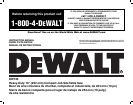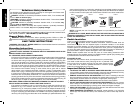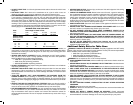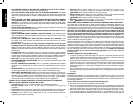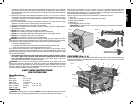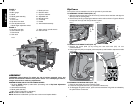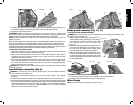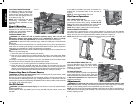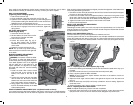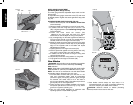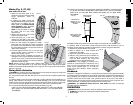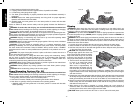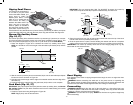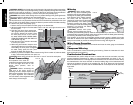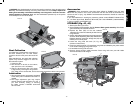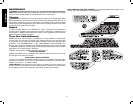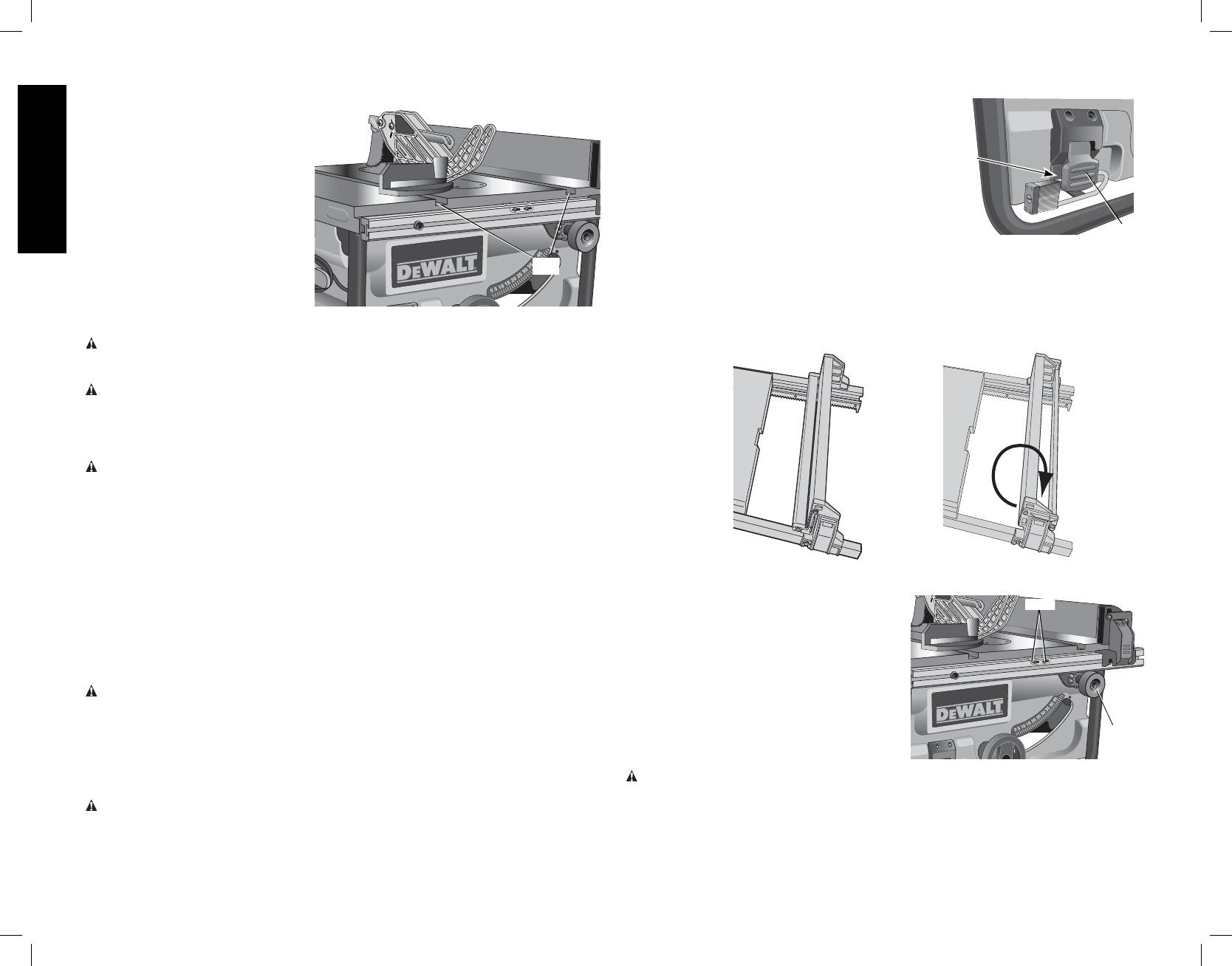
8
English
TO ATTACH THE MITER GAUGE
FIG. 12
JJ
The DW745 includes a miter gauge
for crosscutting materials. The miter
gauge can be used by insertion into
one of the two miter gauge slots (JJ)
in the table top (Fig. 12).
NOTE: See crosscutting and bevel
crosscutting instructions before
performing these operations on the
table saw.
Bench Mounting
NOTE: A portable table saw stand is
designed for use with this saw and is
available at a local D
EWALT dealer or
service center at extra cost.
TO BENCH MOUNT SAW
WARNING: To reduce the risk of serious personal injury, turn unit off and
disconnect machine from power source before attempting to move it, change
accessories or make any adjustments. An accidental start-up can cause injury.
CAUTION: To reduce the risk of personal injury, make sure table saw is firmly mounted
before use.
The table saw must be mounted firmly. Four mounting holes (N, Fig. 3) are provided in the
metal frame for mounting. We strongly recommend that these holes be used to anchor the
table saw to your workbench or other rigid, stationary work support.
CAUTION: Ensure that the surface is stable enough that large pieces of material will not
cause it to tip over during use.
1. Center the saw on the desired, stable work surface.
2. Drive four 3-1/2" (88.9 mm) long screws through the holes in the metal frame. Make
sure the screws extend through the frame and securely attach to the supporting work
surface.
If marring the supporting work surface is a concern, the DW745 can be mounted to scrap
wood which can then be clamped onto the desired work surface.
1. Cut a piece of 3/4" (19 mm) plywood to fit beneath the footprint of the saw.
2. Screw the saw to the plywood and clamp the overhang of the plywood to the work
surface. If the screws protrude through the plywood base, set it on two scrap pieces of
material of equal thickness and attach them to the edges of the plywood to hold the saw
further off of the work surface and prevent the screws from marring the surface.
Connecting Saw to Power Source
WARNING: To reduce the risk of injury, before connecting saw to power source, make
sure the switch is in the OFF position.
Be sure your power supply agrees with the nameplate marking. AC Only means that your
saw will operate on alternating current only. A voltage decrease of 10 percent or more will
cause a loss of power and overheating. All D
EWALT tools are factory tested. If this tool does
not operate, check the power supply.
On-Off Switch
WARNING: To reduce the risk of injury, be sure switch is in the OFF position before
plugging machine in.
Lift the ON/OFF switch (K) paddle up to turn your saw ON and push it down to turn your
saw OFF.
A hole (KK) is provided in the switch for insertion of a
FIG. 13
K
KK
padlock with a removable shank to lock the saw off
(Fig. 13).
NOTE: A conventional padlock will not fit.
Rip Fence Operation
RAIL LOCK LEVER (FIG. 4)
The rail lock lever (W) locks the fence in place
preventing movement during cutting. To lock the rail
lever, push it down and toward the rear of the saw. To
unlock, pull it up and toward the front of the saw.
NOTE: When ripping, always lock the rail lock lever.
WORK SUPPORT EXTENSION
Your table saw is equipped with a work support extension to support work that extends
beyond the saw table. To use the work support extension, rotate it as shown in Figure 14.
When not in use, the work support extension retracts, as shown in Figure 15.
NOTE: Retract the work support extension whenever working over the table.
FIG. 14
FIG. 15
FINE ADJUSTMENT KNOB (FIG. 16)
The fine adjustment knob (H) allows smaller
FIG. 16
NN
H
adjustments when setting the fence. Before
adjusting, be sure the rail lock lever is in its up
or unlocked, position.
RIP SCALE POINTER
The rip scale pointer will need to be adjusted for
proper performance of the rip fence if the user
switches between thick and thin kerf blades. Refer
to Rip Scale Adjustment under Adjustments for
alignment instructions.
Adjustments
WARNING: To reduce the risk of injury, turn unit off and disconnect machine from
power source before installing and removing accessories, before adjusting or changing
set-ups or when making repairs. An accidental start-up can cause injury.
NOTE: Your saw is fully and accurately adjusted at the factory at the time of manufacture. If
readjustment due to shipping and handling or any other reason is required, follow the steps
below to adjust your saw.



